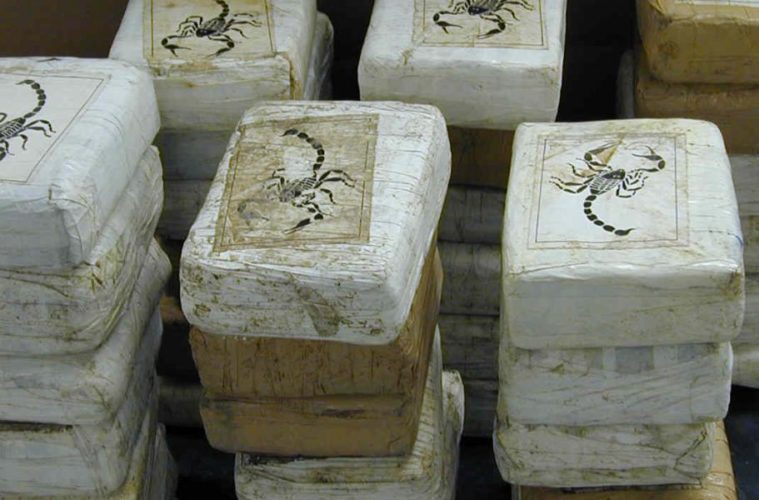Late last week, the Drug Enforcement Administration announced it would be conducting a comprehensive review of its international operations on the heels of a report on the subject from the Department of Justice’s Office of the Inspector General.
The DEA has 91 foreign field offices in 69 countries across the world.
The independent review was ordered by the DEA’s new Administrator Anne Milgram. Milgram previously served as the attorney general of New Jersey from 2007 to 2010 before Chris Christie’s circus act. Prior to that, she was a federal prosecutor serving as the DOJ’s Special Litigation Counsel for Human Trafficking, essentially leading federal human trafficking prosecutions. Prior to taking the reins at the DEA, Milgram was serving as a professor of practice and distinguished scholar in residence at New York University School of Law.
Most importantly about Milgram, in her years since being New Jersey’s top cop, much of the academic work she did was focused on reforming the criminal justice system through data, analytics and technology. So in theory, maybe this review is meant to kick off a more data-based approach to enforcement, or at least the way the DEA interacts with its foreign partners in law enforcement.
The review will take a look at things like the DEA’s foreign footprint, including administrative and financial support for those operations from DEA headquarters.
“This review will provide recommendations for my consideration upon completion. Specifically, I expect the team to provide an assessment of DEA’s current international operational capacity, and to identify areas for improvement to ensure DEA’s international operations are impactful and effective, with the appropriate structures, procedures, and controls to ensure integrity and accountability,” said Administrator Milgram.
The move by Milgram comes in the wake of a report by the Department of Justice’s Inspector General reviewing the DEA’s headquarters-based oversight of its supported foreign law enforcement units.
“We found that DEA’s headquarters-based management and oversight of its supported foreign law enforcement units are insufficient for the high-risk environment in which these units operate,” the Inspector General noted in its executive summary of the audit. “Despite serious incidents involving these units, the DEA has not sufficiently assessed or augmented its oversight to mitigate known risks. The DEA also lacks a comprehensive strategy at DEA headquarters to account for all units funded and established by DEA country offices, requirements for host nation collaboration, the total funding provided for each unit, and the overall performance accomplishments of these units.”
Another issue the Inspector General found focuses around all the high-tech gear the DEA had access to. They aren’t convinced the DEA would be able to account for all the technology it’s shared with its law enforcement partners.
“We also found that the DEA has not sufficiently monitored the DEA’s export and management of sensitive technologies provided to foreign law enforcement units,” the Inspector General wrote. “Together, these issues demonstrate the need for the DEA to evaluate and enhance strategic management of its important partnerships with foreign law enforcement.”
The report’s main recommendations leading to the independent DEA audit were mainly around DEA Sensitive Investigative Units (SIU), Non-SIU Vetted Units (Non-SIU VU), and a precursor to its current Foreign Counterpart Program.
First off, the report noted the DEA can reduce risk by improving its process for reporting and responding to critical incidents involving SIUs and Non-SIU VUs. The Inspector General’s office was particularly critical here given the high-level public incidents that have occurred in recent years.
The report admitted the DEA understands that delicate walk with host countries, corruption, and its own vetting process when working abroad, “Yet, the DEA has experienced various negative and highly publicized incidents involving these units, which highlight the importance of program safeguards and the reality of the risks associated with these partnerships. However, the DEA has not strategically or programmatically evaluated these incidents involving foreign law enforcement units to identify lessons learned and enhance oversight.”
Other recommendations include tracking the funding used abroad better. Currently, the DEA can’t accurately account for the costs per unit for agents and support staff operating overseas.
“We found that the DEA does not have a full accounting of all internal and external funding that is provided to these units,” the report noted. “For instance, the DEA does not comprehensively track or monitor the Department of State and Department of Defense intergovernmental funding provided to Country Offices to support these units. Without an accurate accounting of the total funds provided to SIUs and Non-SIU VUs, the DEA cannot adequately assess its budgetary needs.”
Another reason to track the money better is that there isn’t a real mechanism to account for the results from the programs funded. The report said DEA headquarters needs an enhanced system to track SIU and Non-SIU VU program requirements and performance.
So if all these programs abroad were working – they’re not – we wouldn’t even be able to tell because there is no accurate mechanism to grade their performance.
Advertising disclosure: We may receive compensation for some of the links in our stories. Thank you for supporting LA Weekly and our advertisers.

